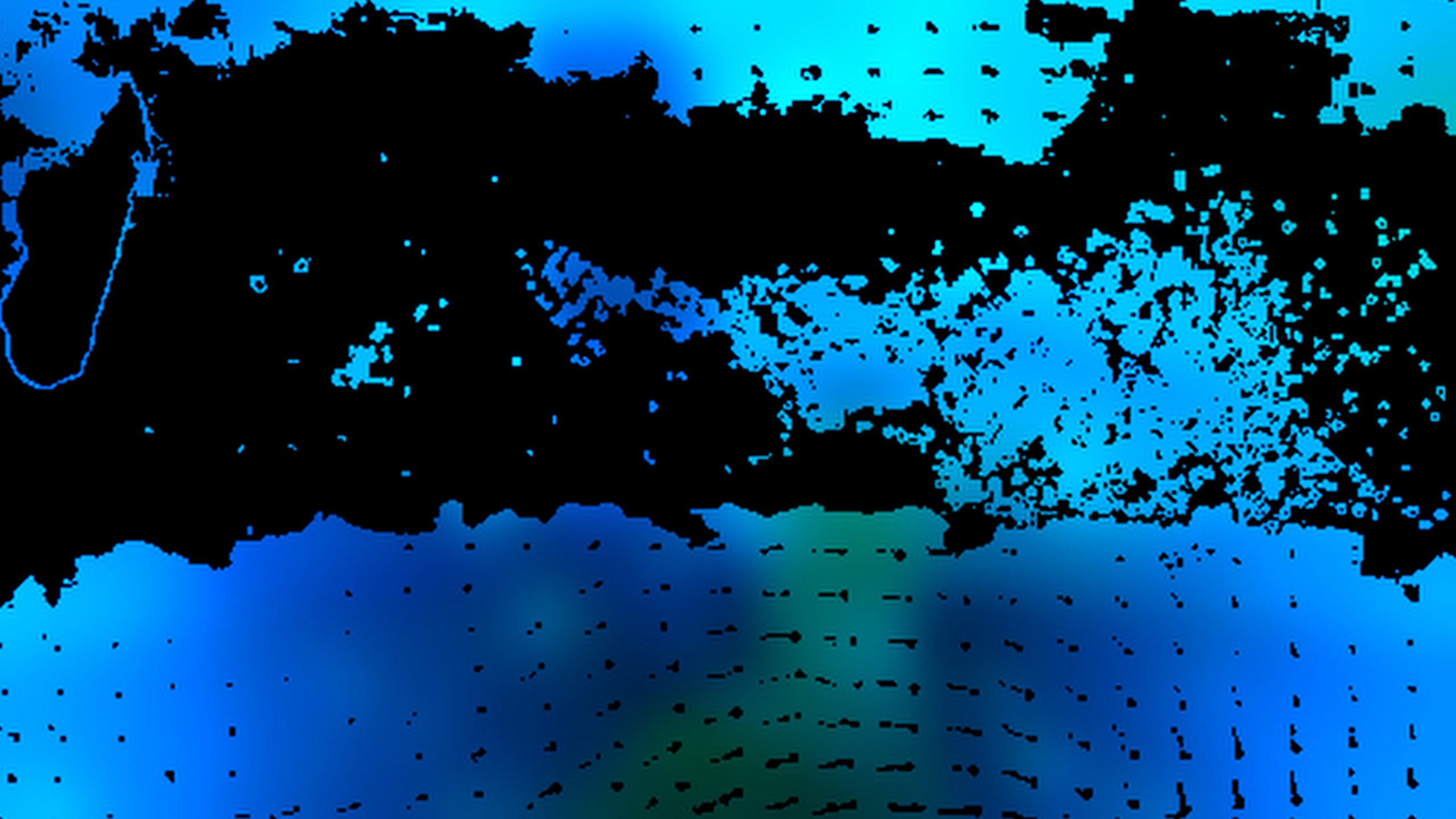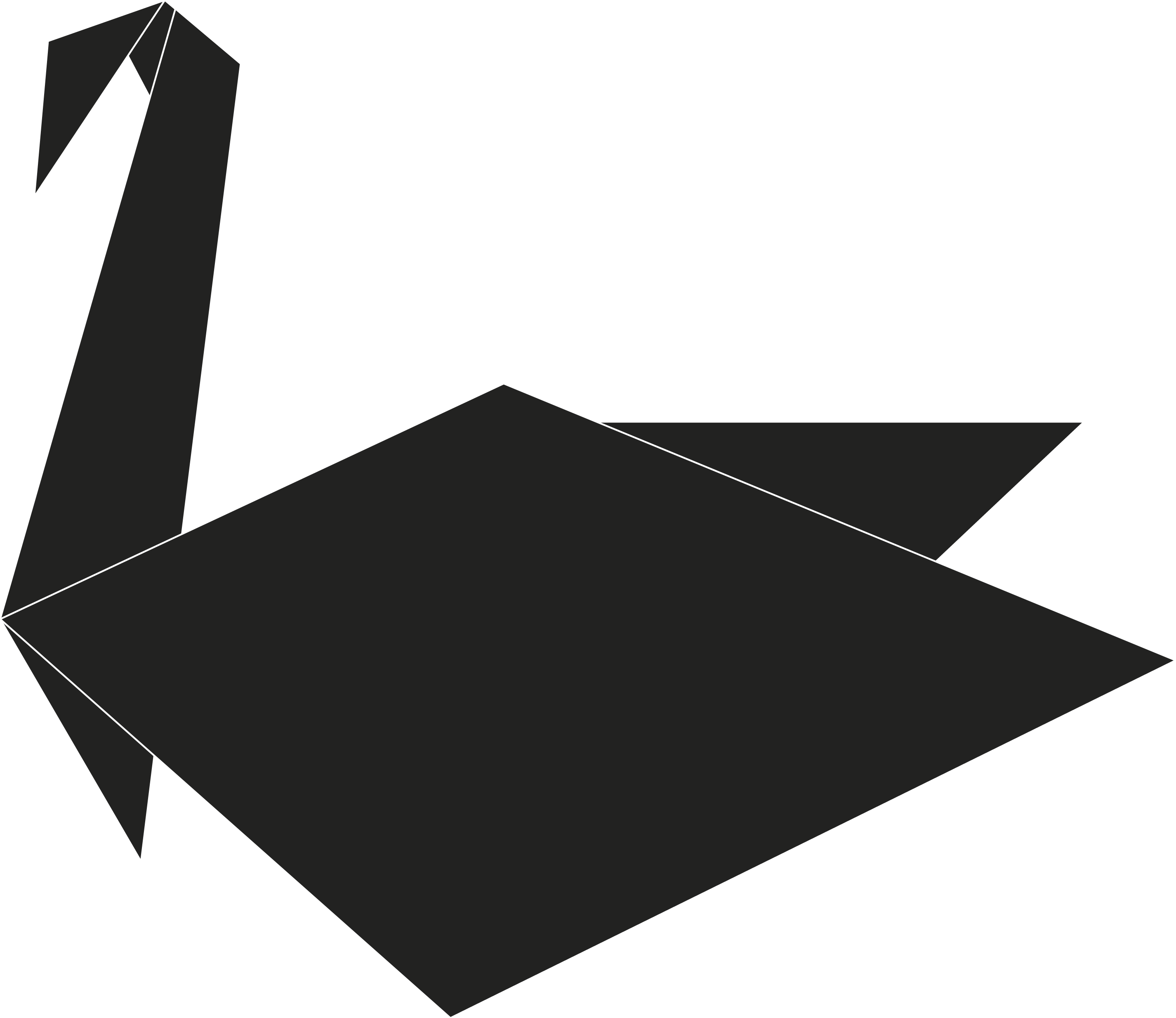Universität der Künste & Technische Universität Berlin
Inter-University, Interdisciplinary, Research-Based Master’s Program Design & Computation
With the new joint master’s program, the two universities are responding to a ubiquitous process of societal and technological change as well to the increasingly dynamic subject culture. The UdK and TU Berlin also share an overarching interest in further thinking across disciplines and developing new teaching and research formats through this program. Students, teachers and researchers in this model program have access to a broad curriculum including the most diverse teaching and research cultures. This enables them to work in an interdisciplinary context and, using techniques and theories at the cutting edge, in a manner both analytical and practical. The works shown here were created in the studio of the master’s program, where students
dedicate themselves to the development of new media, materials and methods for design processes within the framework of project work and a theme that changes each year. This takes place in the form of drafts, visualizations, concrete experimental applications or design implementations on a variable scale.
Location
splace / Hauptplatz
→exhibition projects
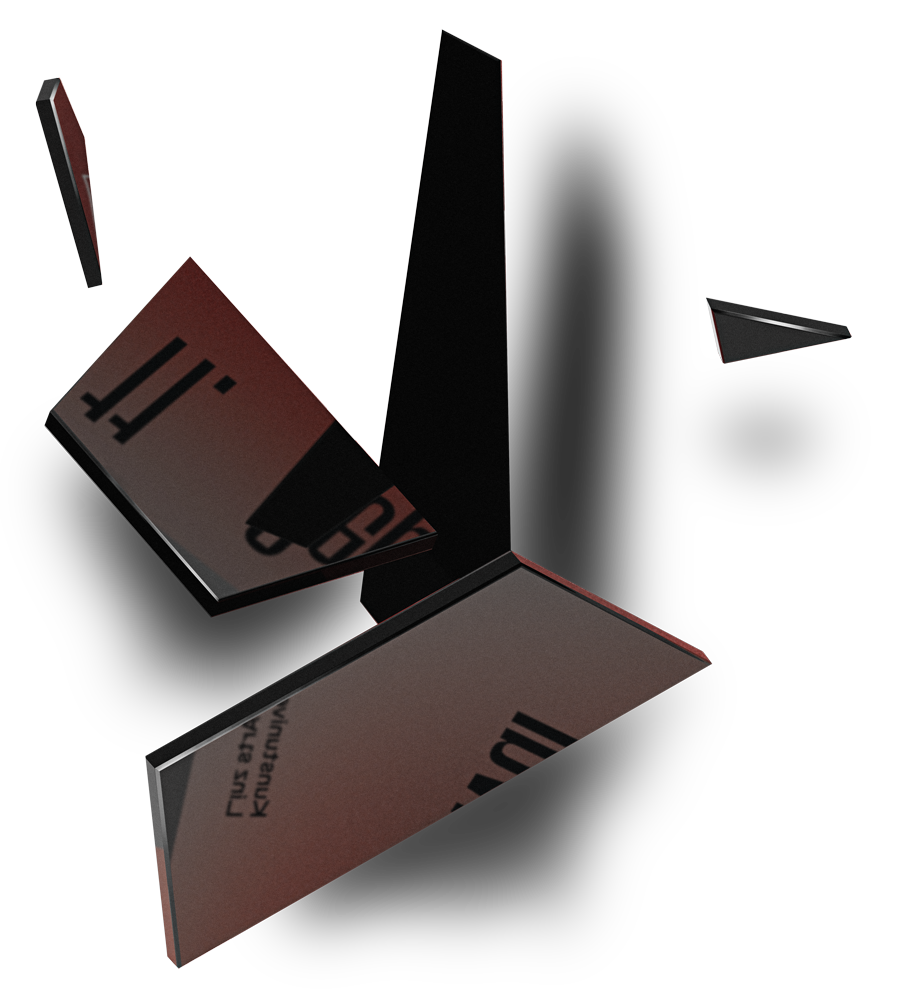
Jonny-Bix Bongers (DE) and Berkay Soykan (DE)
A Psalm for the Body-Built
“One is not born, but rather becomes, a body.” (Legacy Russell)
In order to rediscover the essence of our bodies as complex assemblages of virtualities and potentialities, we propose the practice of bodybuilding. In a first attempt at creating a critical space for this practice, the interactive VR installation investigates what it means to have, and become, a body in a technologically mediated environment. Within an immersive landscape of artifacts and operations, the immersant is urged to question their bodily perception and explore their own bodies’ (im)materiality, virtual manifestations and becomings.
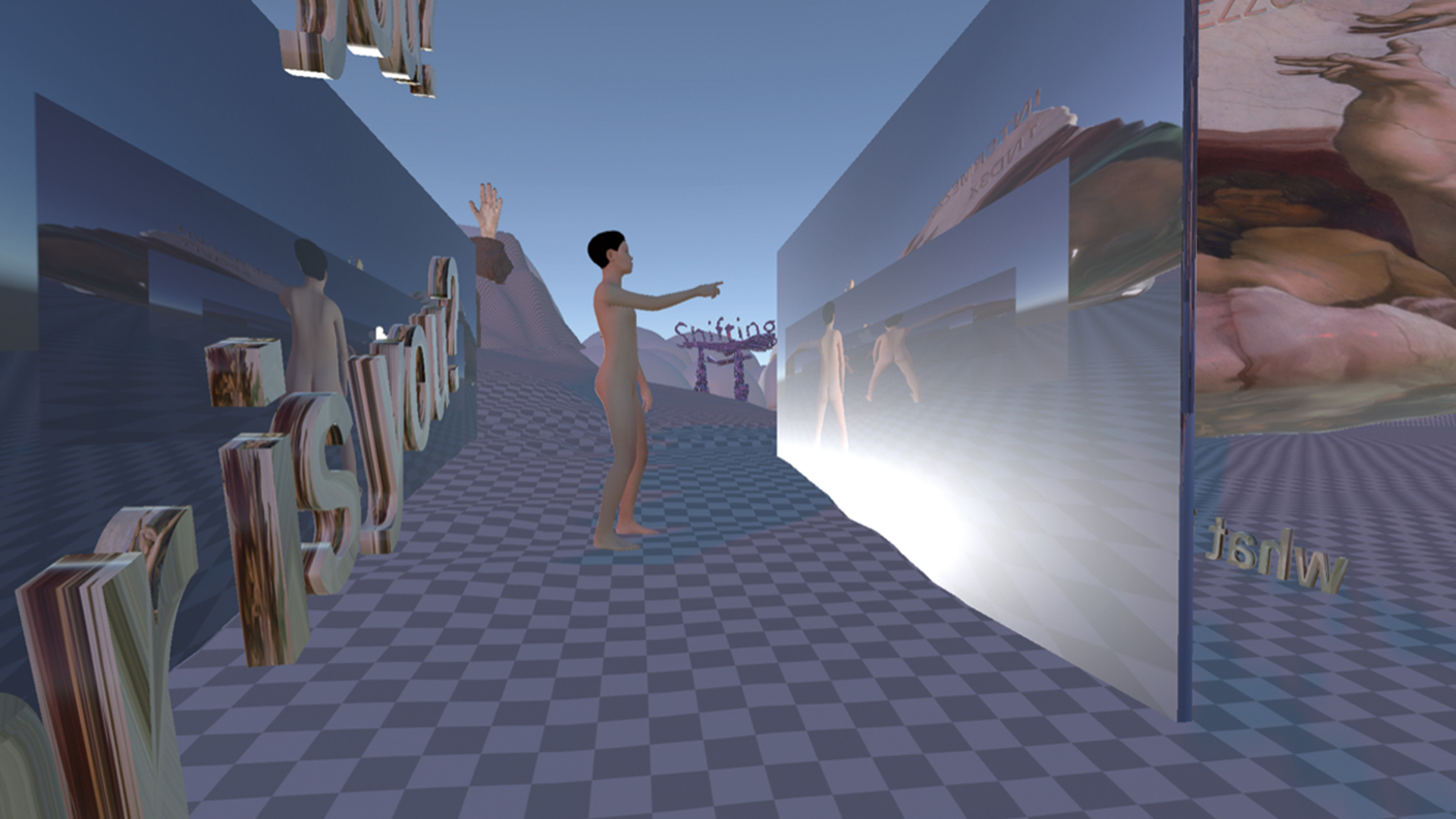
Athena Grandis (DE), Duygu Masalci (DE)
Be-you-tiful Me-tamorphosis
The video installation serves as an ironic critique of the cultural phenomenon of toxic-positivity perpetuated by social media and the wellness industry. Through a rhetoric of “self-mastery”, “resilience” and “happiness”, wellbeing is being reduced to a matter of developing a skill, shifting attention from larger social, political and economic forces onto individuals. Centered around a robotic entity that carves affirmations into the outer skin of a flesh-like body, the artwork exposes the assumed superiority of technology and its role in shaping social codes in a technocratic society.
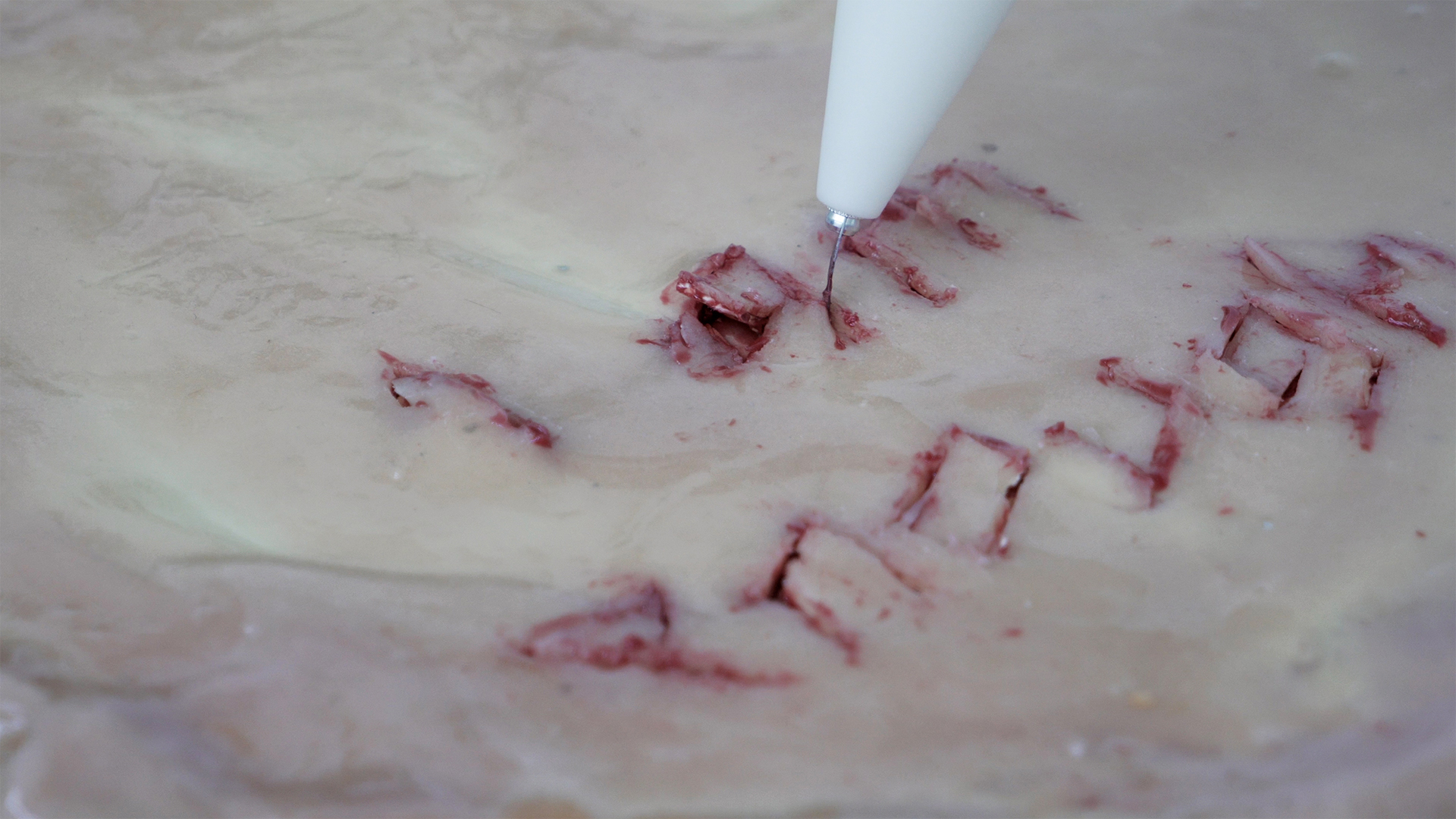
Jonny-Bix Bongers (DE), Jonathan Möller (DE), Florian Porada (DE)
Boutique 2XXX
The interactive installation enables participants to design individual and critical future visions of luxury and subsequently create a space for reflection and discourse in the form of a virtual boutique. This mixed reality experience is an iteration of an ongoing research project that deals with the question of how emergent technologies can help to debate socially relevant issues more intuitively.
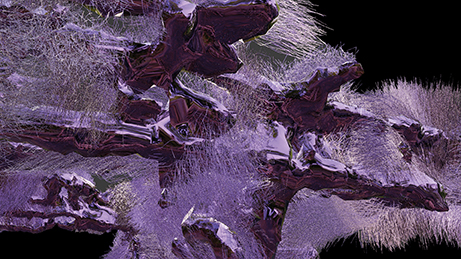
Felix Ansmann (DE), Pablo Torres (CO), Maurice Wald (DE)
Cartographic Exercises
Cartographic Exercises is a multimedia installation exploring the potentials of dynamic and interactive cartographies to discern global networks that exceed human perception. It presents a partial abstraction of the social, economic and ecological entanglements which encompass the infrastructure of nowadays’ ubiquitous digital technologies in an immersive scenario constructed with both physical and digital features.
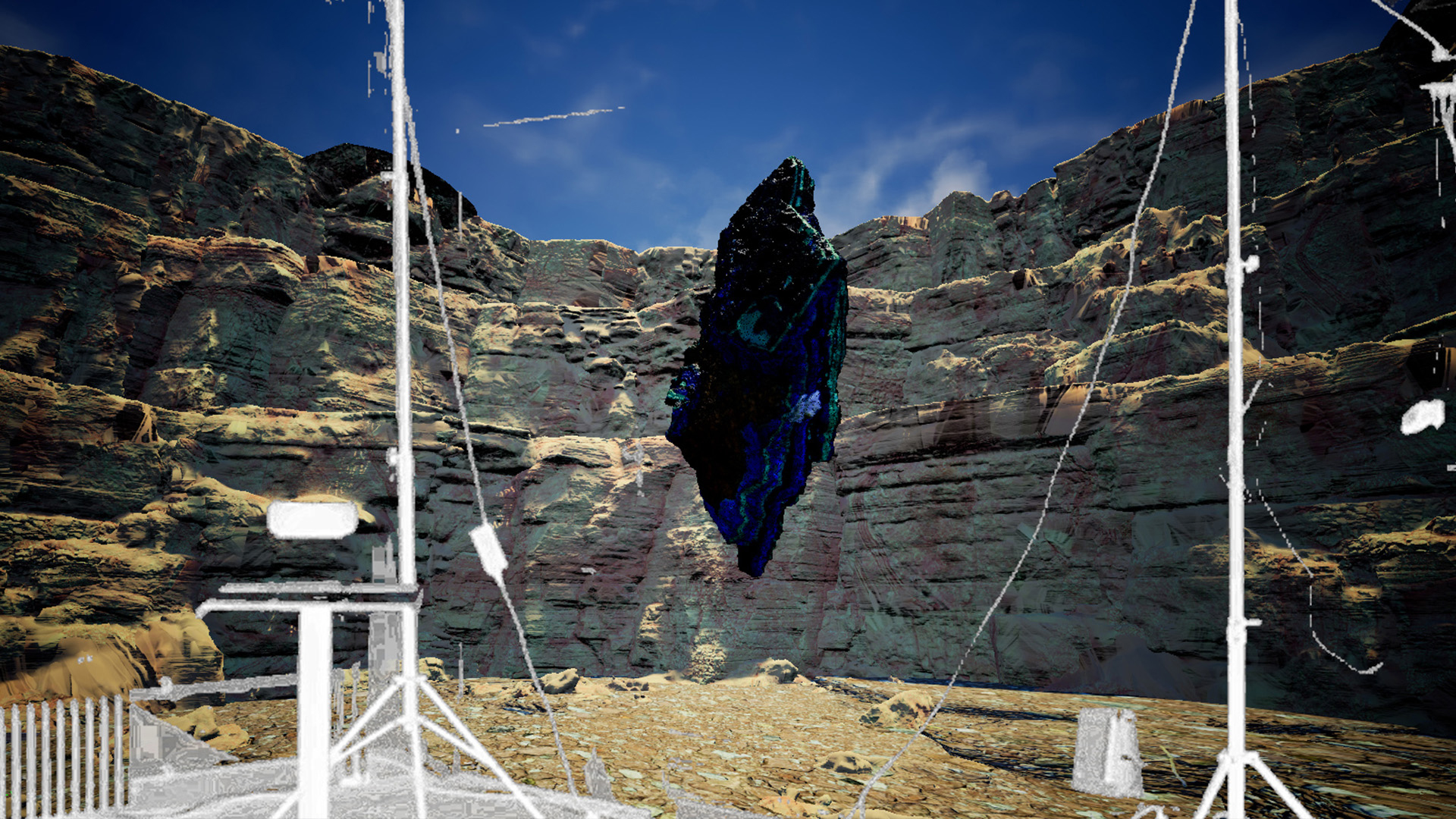
Philipp Gschwendtner (DE), Benjamin Herrmann (DE)
Data Badlands
The project takes inspiration from geological archives shaped by the forces of wind and water and adapts these processes to digital data. An algorithm erodes, alters and transports information based on rules that incorporate the basic laws of thermodynamics and information theory. Thus, Data Badlands reflects upon the binary distinction of deleting or keeping data, opening a third possibility of slow regress.
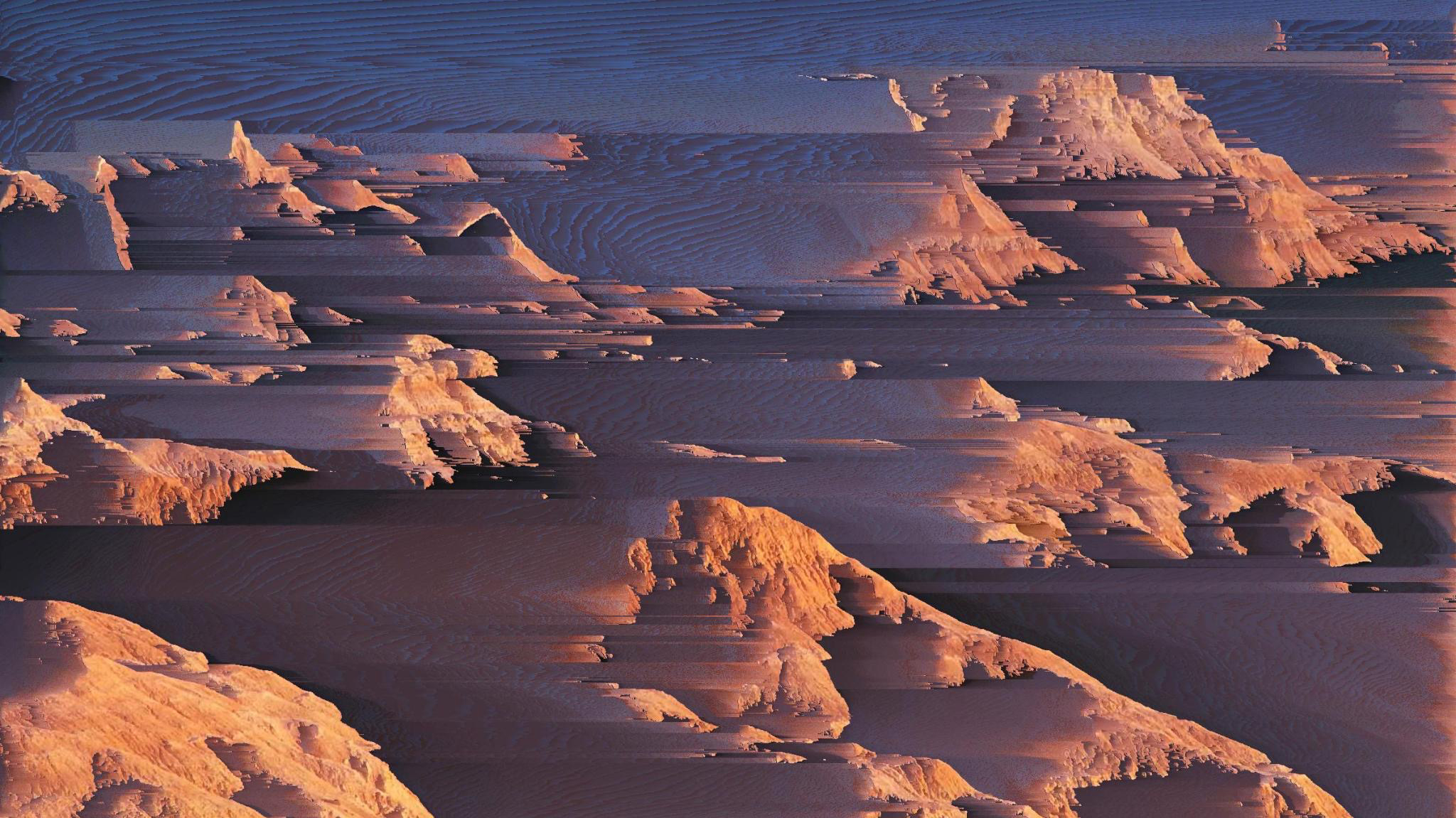
Tim Alder (AT), Benjamin Herrmann (DE)
Digital Trace
Digital Trace deals with the conception of an interactive virtual archive that documents the multitude of multimedia art and research generated in the transdisciplinary Design & Computation study program. Through spatial data visualization and dynamic interlinking of multimedia content based on algorithmic classification, the work seeks to redefine authorship and agency in archival processes.
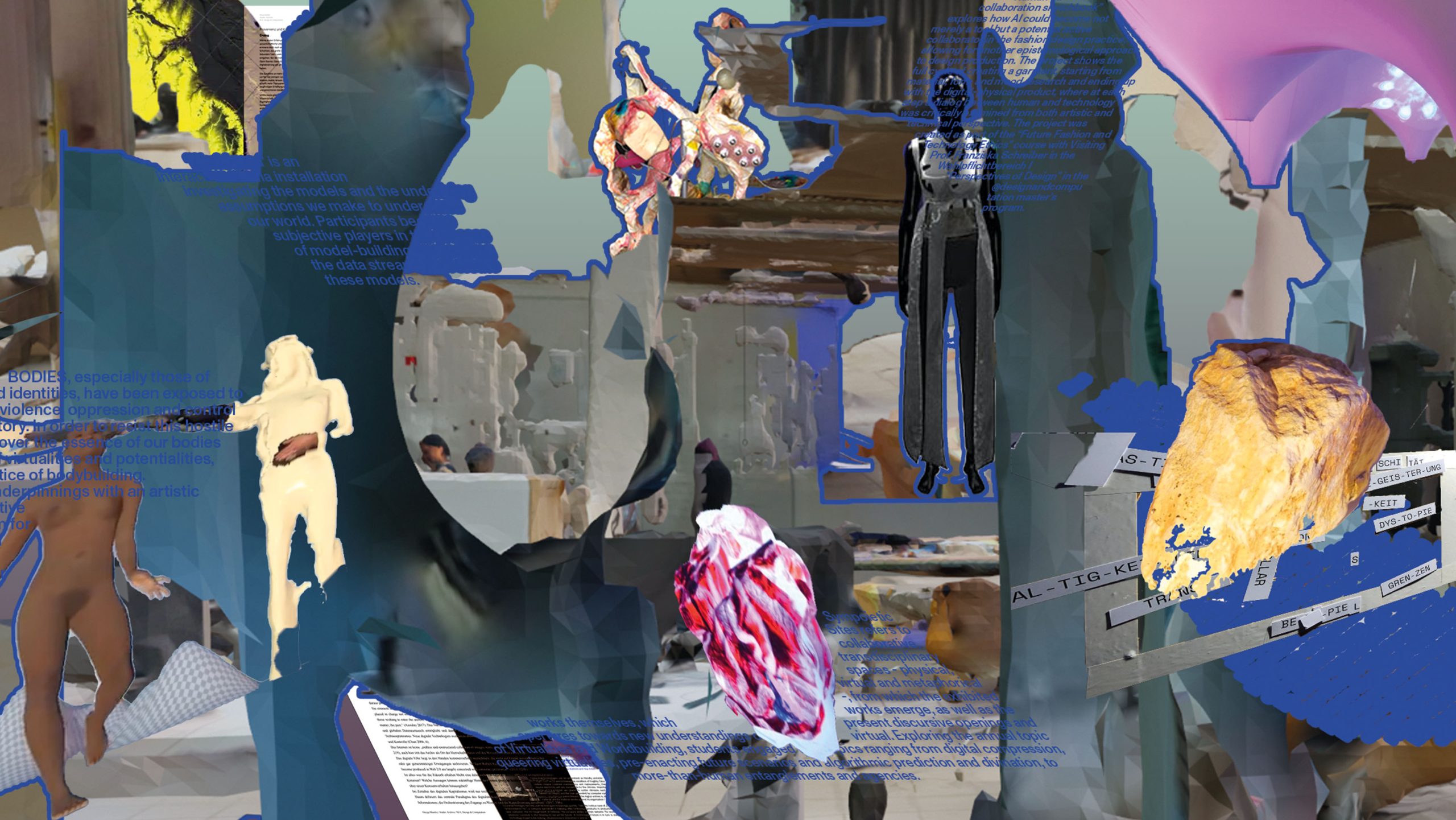
Pablo Torres (CO)
Gold Mercury Amalgams – Deep Listening
Developed together with knowbotiq collective, the listening session delves into gold and mercury amalgams—mercury is used to wash gold out of the earth—proposing a fictional space of sensing what could be a collective subconscious of a mineral incorporated into all of our raw metabolisms: transformed into derivative stock market products, components of high-tech technologies, or libidinous wellness products.The sound installation explores the materiality of sounds which take form through glass bodies that work as resonators and allude to the molecular processes of gold refinement.
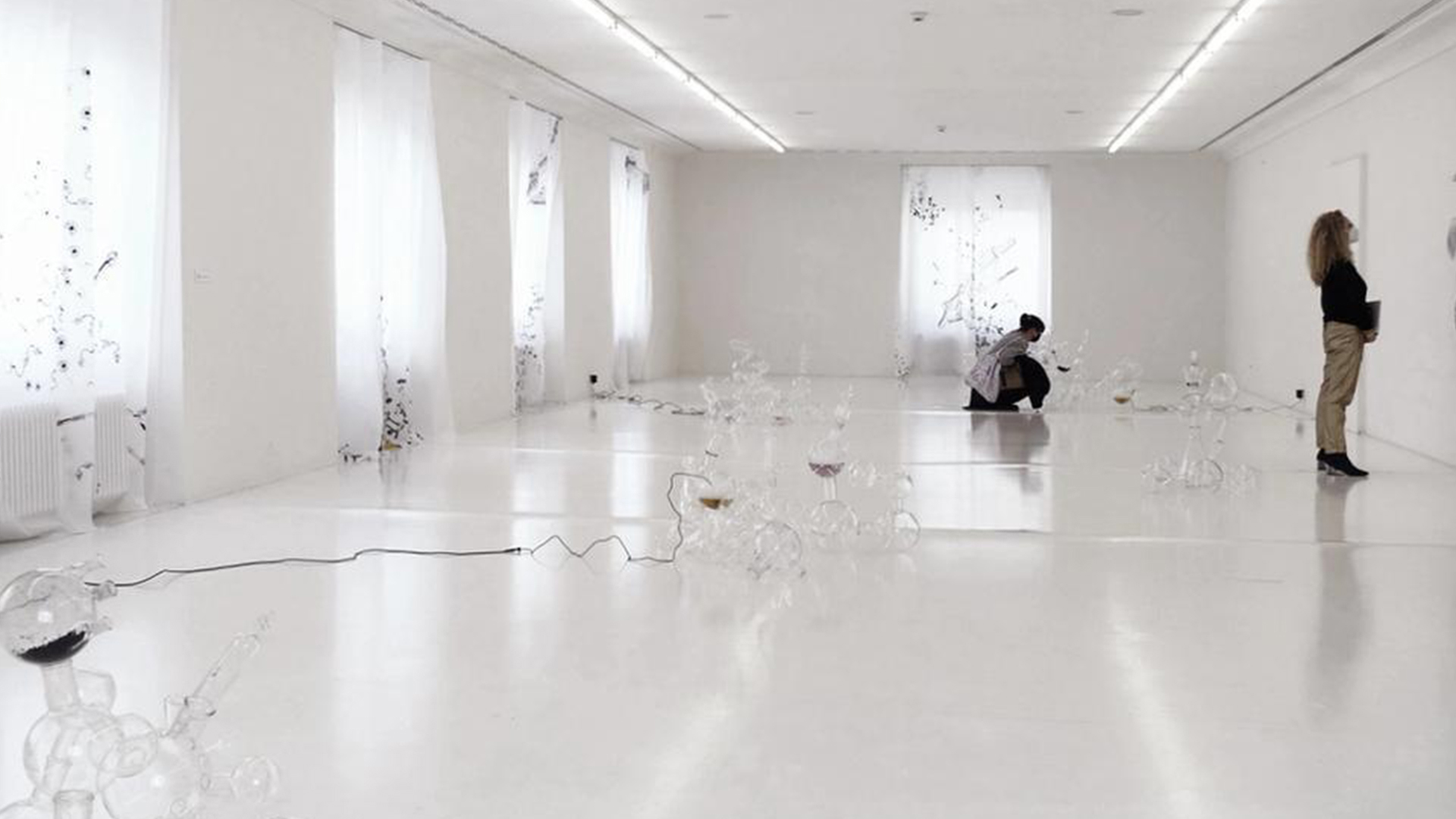
Maurice Wald (DE)
Human Intelligence Task (HIT)
The work draws on parallels between cybernetics and digital labor in microwork marketplaces and engages with the materiality of a process where the matter seemingly doesn’t matter; where repetitive machine tasks are outsourced to humans – mediated by platforms like Amazon’s MechanicalTurk. According to the court order concerning reCAPTCHA in Rojus-Lozano v. Google the few seconds it takes to transcribe a word is not entitled to compensation – on microwork platforms the few seconds are repeated for whole days in order to make a living. In playing with the digital and the analog, with images of repetition and (lost) creativity, the work focuses on the material aspects behind platformized digital labor.
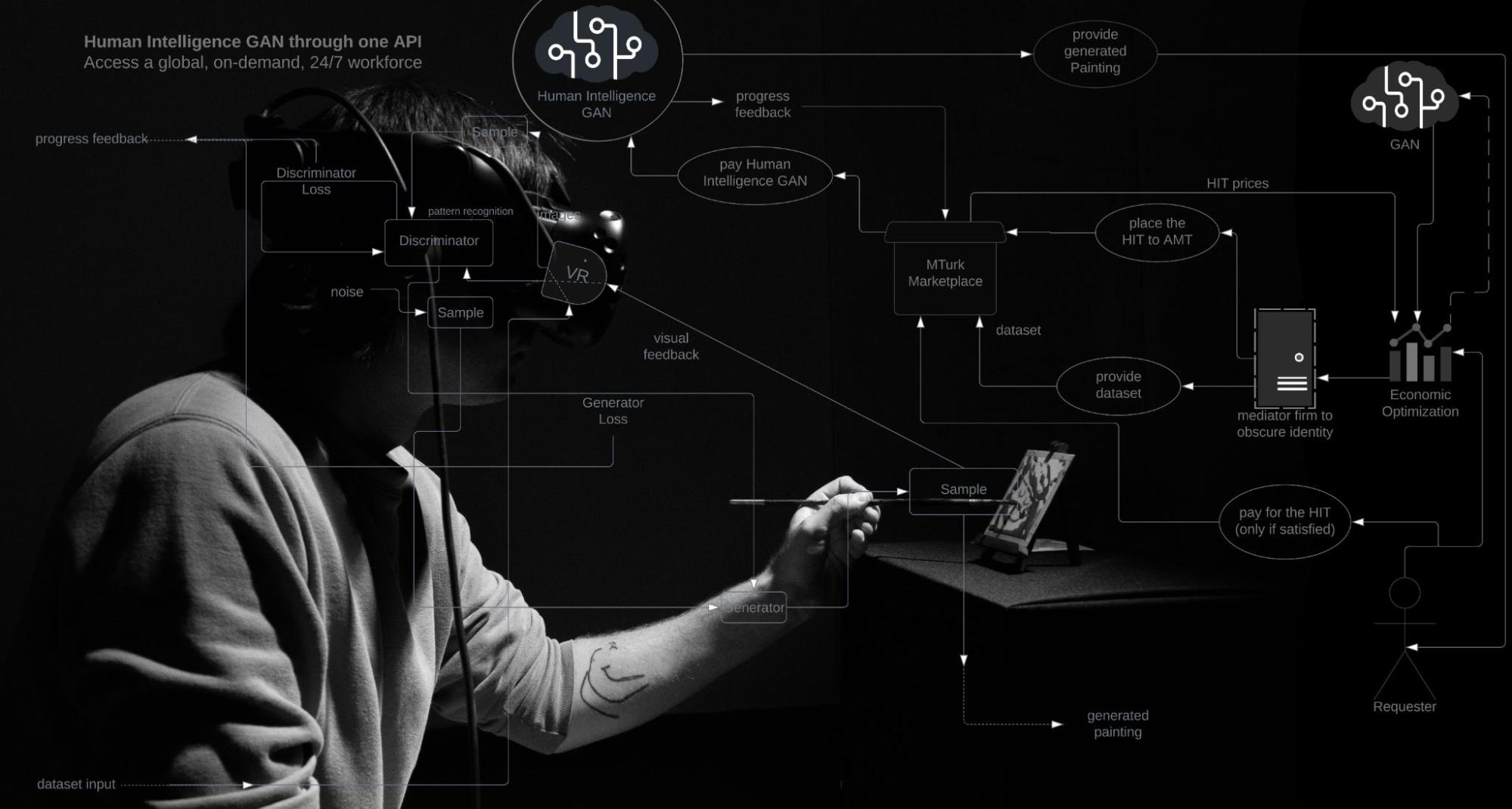
Fabian Schneider (DE), Erik Vogler (DE)
Imagine you are going for a walk.
Imagine you are going for a walk. in an area that is very familiar to you, but the further you go, the more your surroundings change. Keep walking until you get lost. Now let your gaze wander. Enjoy the fuzziness at the edges of your attention. After a while, start walking again.
Imagine you are going for a walk. is a diagrammatic game that combines projected maps with a haptic topographical interface. Visitors can perform different scenarios by moving game pieces on the artificial landscape. Their movements are tracked, reassembling the template for the following games.
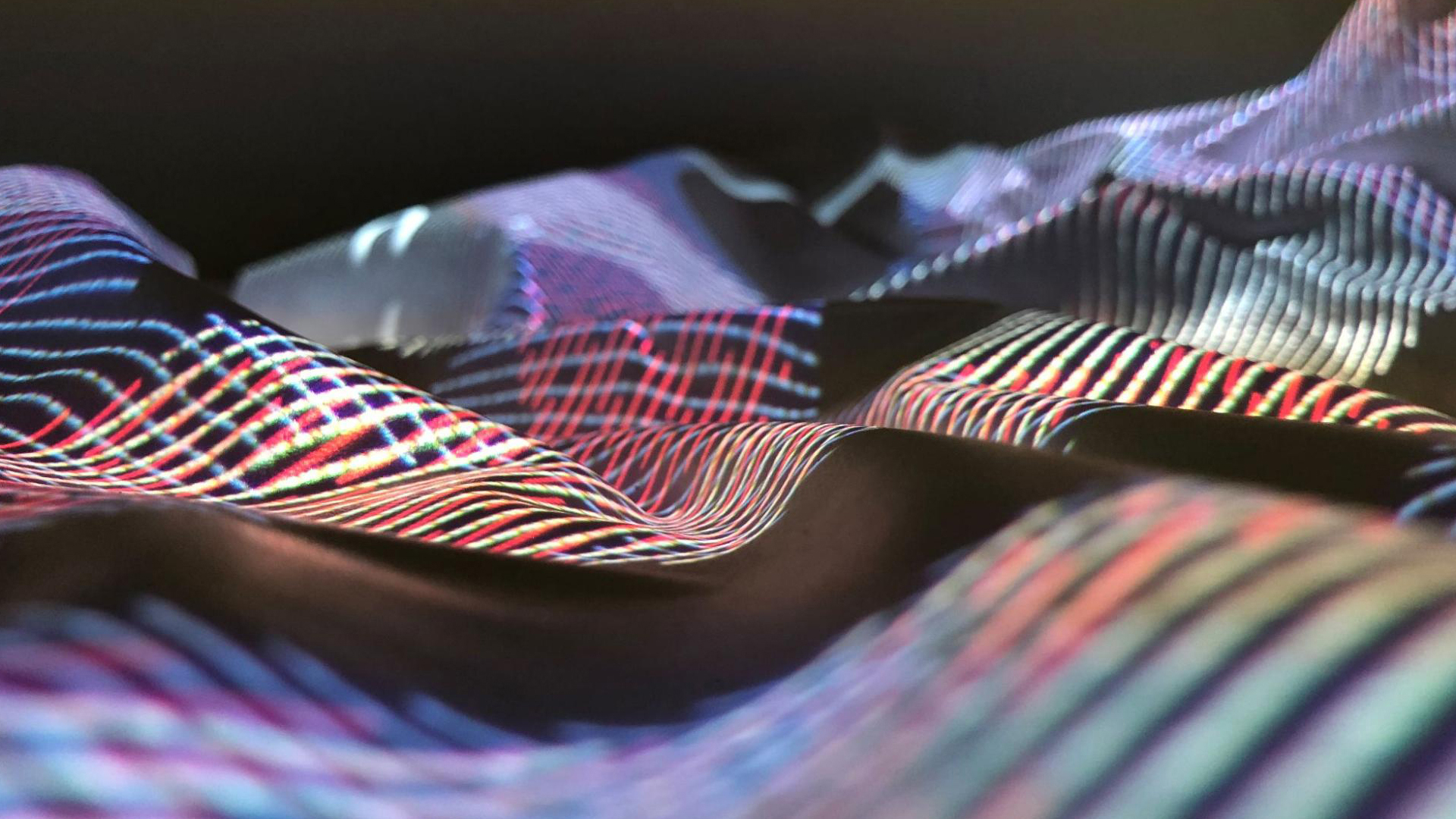
Philipp Gschwendtner (DE), Duygu Masalci (DE), Lars Pinkwart (DE), Jason Thompson (DE, GB)
INCORPORATED
The multi-media installation takes on a cross-temporal perspective on the way big data analytics and algorithmic prediction govern our lives both in the present and into the future. As a speculative scenario, the installation considers an uncanny future where tech behemoths as government service providers have reached levels of power until now only held by nation states, not only exercising influence over the digital space but re-structuring the very fabrics of the societal order. By superimposing global visions of Big Tech with the lived experience of local and material witnesses, INCORPORATED becomes a site of critique and strategic intervention.
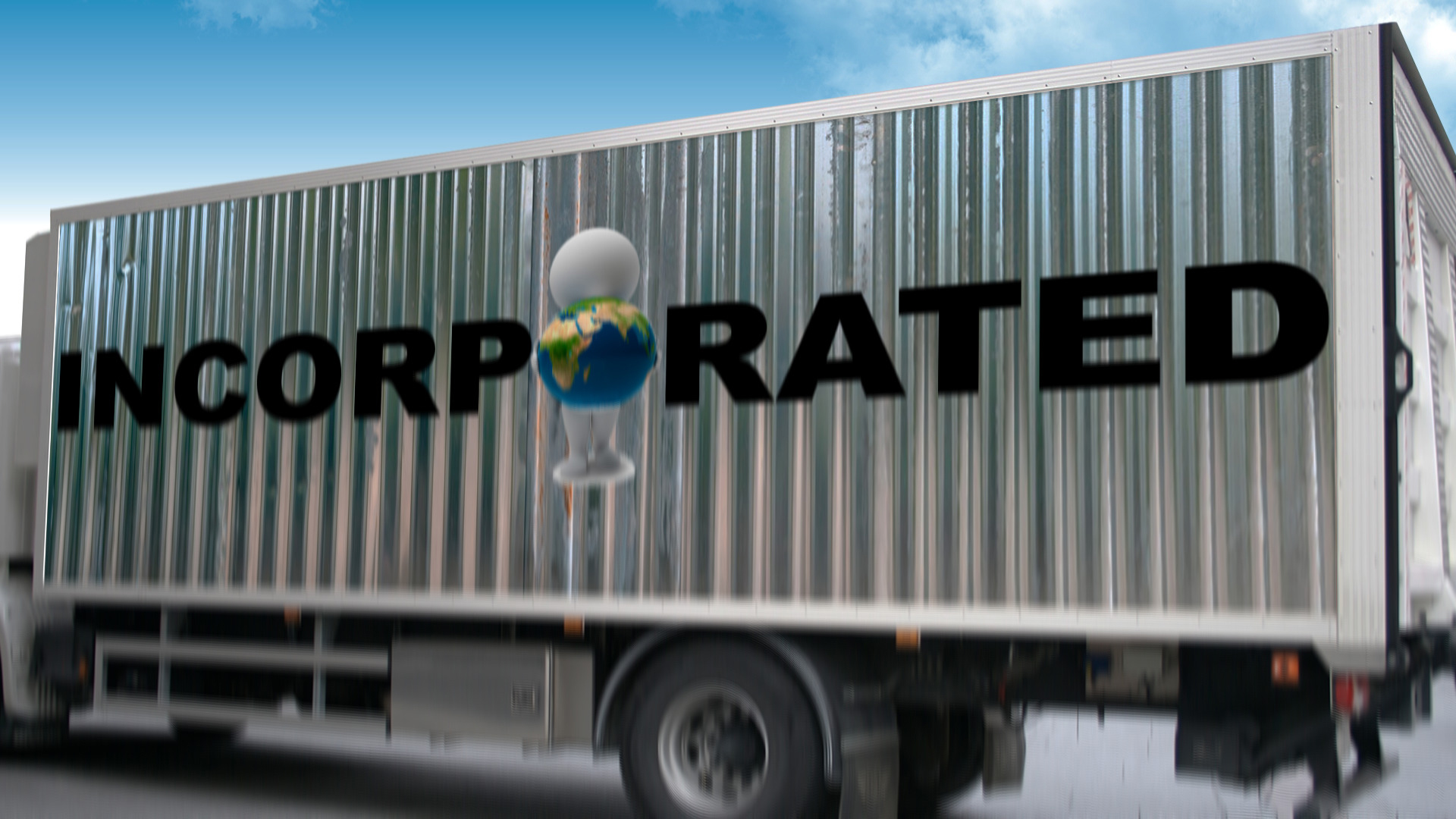
Anastasia Almosova (RU)
Inter-face.
Inter-face is a mixed-media installation that elaborates new models of Human-Machine-Interaction by introducing collective low tech communication strategies in a technologically mediated environment. With the help of wearables, users come into physical communication, triggering specific events in the digital realm. The efficient use of the interpersonal interfaces defines the outcome of the interaction with the machine.
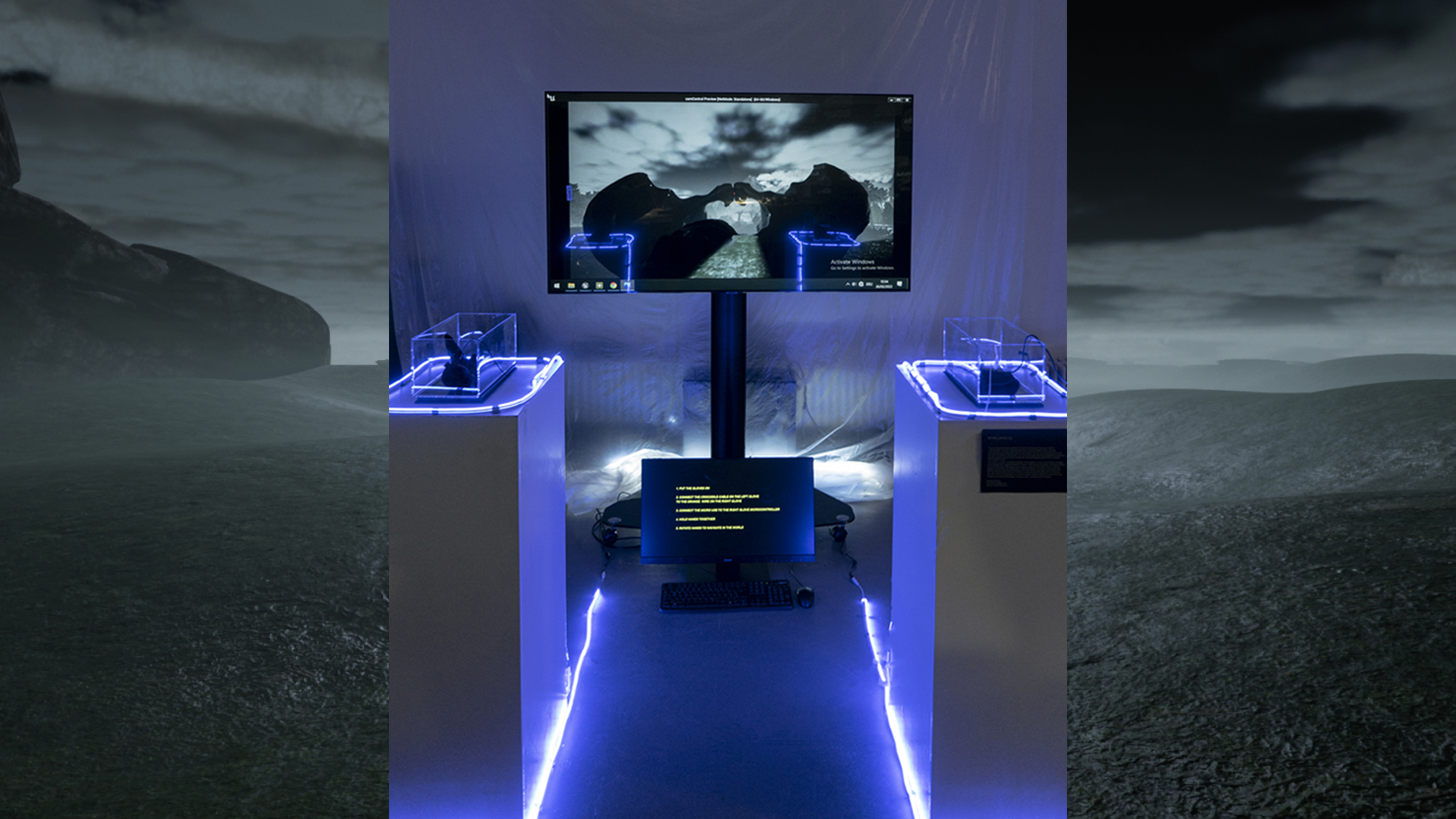
Julia Ziener (DE)
Shifted Agency
The showcase investigates biopolymers and their various methods of further processing, such as additive manufacturing, focusing on the triangle between robot, material, and human, ultimately questioning the predominant hierarchical human-robot relationship.
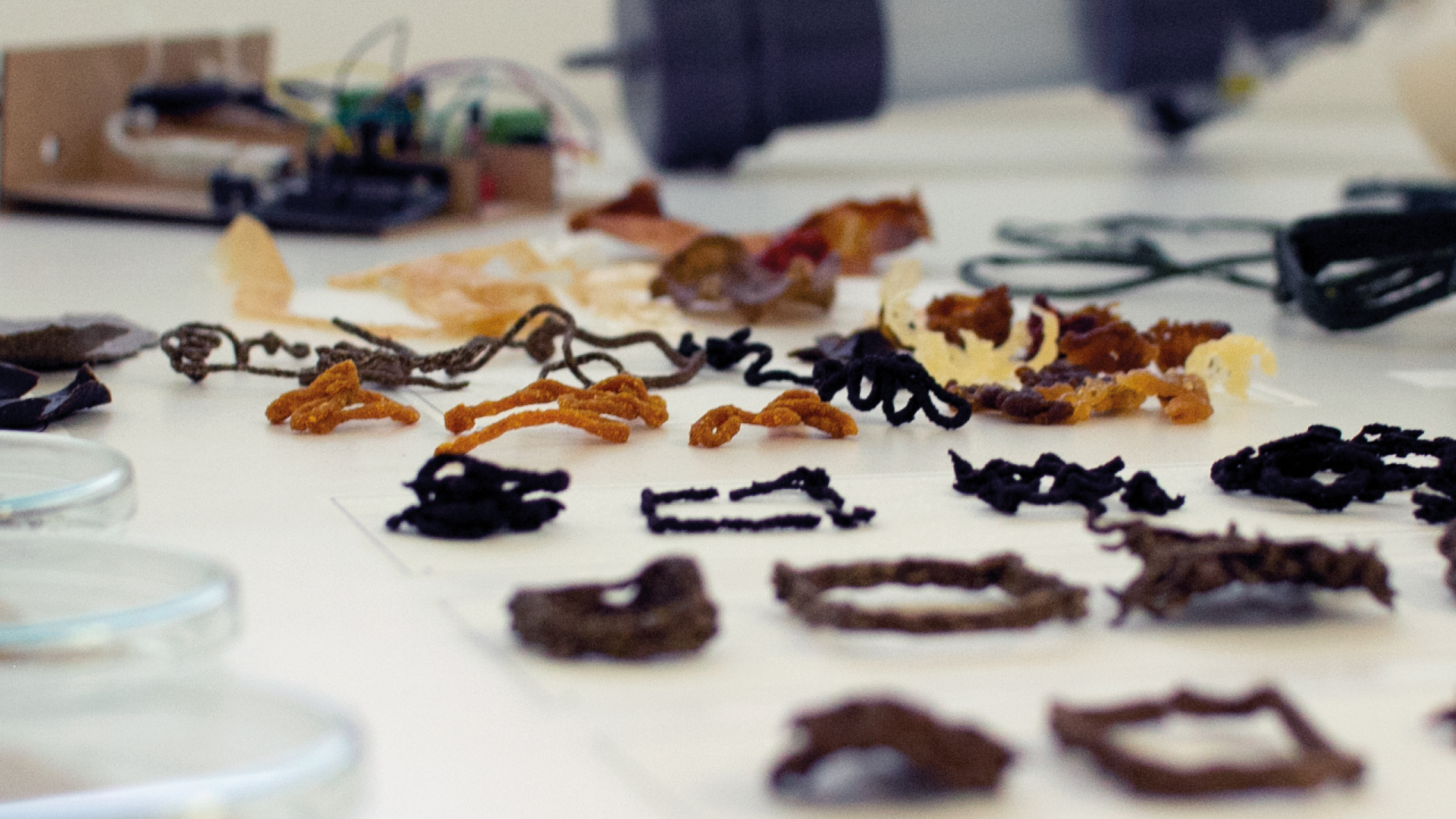
Séba Nasr Aldin (LE), Ramy Frahat (IT), Patrick Grochla (DE), Artur Kim Shum (BR), Jo-Moritz Krah (DE)
Sonic Gaze
Sonic Gaze investigates the process of transforming ephemeral moments into durable entities through recording sound. Advancements in technology like machine learning and enhanced recording techniques offer new possibilities of analyzing and working with sound once it has been detached from its source. The work applies these technologies to the practice of sound archiving in order to reveal the epistemological qualities of sound. Thus challenging the dominance of visual representation and suggesting an alternative model of knowledge production and sensory perception.
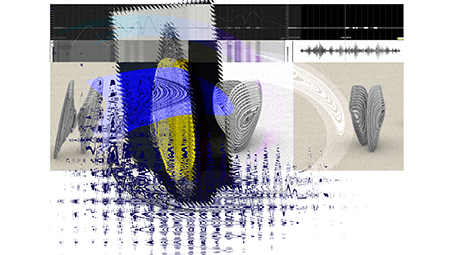
Athena Grandis (DE), Anna Kraher (AT)
The truth, the whole truth and nothing but the truth.
The interactive installation deals with the production processes of fictions and facts. The focus of the work is on investigations as processes of searching for “truth” and constructing “truth”. The installation consists of a series of stages, each exploring how a particular media format re/produces and narrates facts and fictions. Starting from a record in a file cabinet, the investigation is conducted by the visitor from stage to stage. At the end of the process, the state of the investigation is archived performatively.
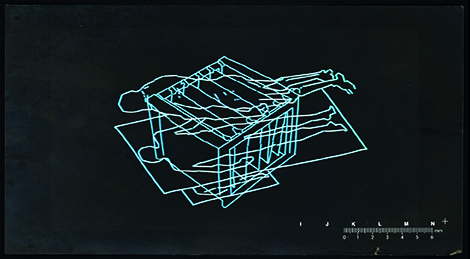
Felix Ansmann (DE), Maurice Wald (DE)
Untitled
The video traces parallels between divination rituals and predictive analytics. It explores their respective poetics, politics and aesthetics, and their inscribed notions of time and power. Blurred, superimposed and homogenized images play on apophenia and pattern recognition as their dominant mode of perception. A text, partly cut-up, partly written, partly AI generated, stitches together diverging narratives, contradicting arguments and unintuitive references into an essayistic whole suggesting causalities through its linearity.
